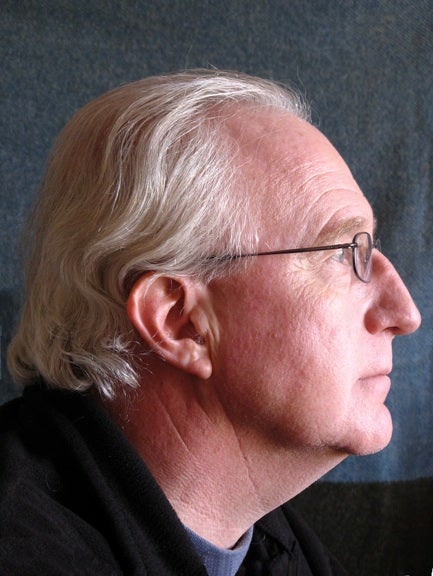
Taken Identity


The United States’ long record on race is, shall we say, checkered. Even in a time when an African-American sits in the White House and mixed-race families are common, issues of race and identity still roil the national conversation. How do we make sense of this seeming contradiction?
Paul Spickard, a UC Santa Barbara historian and one of the country’s foremost scholars of race, has some ideas on the matter. In his new book, “Race in Mind: Critical Essays” (University of Notre Dame Press, 2015), Spickard tackles a range of issues, including racial categories, identity, multiethnicity, Whiteness studies and more. In 14 essays that span more than 20 years of scholarship, he dissects the history of race as a social construct and assesses the present and future of race in America with insight and wit.
“It’s not a political book pointed toward a particular discussion, but I’m trying to think systematically how race works,” Spickard said. “It’s a book of theory, but I’m trying not to write it like a book of theory.”
You couldn’t throw a dart at a 400-year calendar of American history and without hitting some moment of racial reckoning. The present, Spickard said, is no different — even if we have a black president.
“We are, once again, renegotiating who gets to be an American and how they get to be an American,” Spickard observed. “That’s been particularly pointed since Barack Obama became a national force because probably about a third of the American people don’t really think that he should be president. They see him as a black president, other folks don’t see him as quite so black. He’s a special kind of black man.
“We know his father was some kind of elite guy who came on a scholarship and left after two years,” he continued. “We know he was raised in exotic Hawaii and even more exotic Indonesia by his hippy mother and his cracker grandparents. He is the partly black guy who performs whiteness perfectly and he performs blackness increasingly well. So that’s a comfortable thing for us.”
Spickard takes a close look at “shapeshifting” — consciously moving between categories — and notes the practice is as old as the country and was adopted by some of its most important figures. He cites the case of W.E.B Du Bois, one of the 20th century’s great intellectuals. Du Bois grew up poor in a small Massachusetts town with few black people. “When he wanted to go college, Harvard would not take him because they regarded him as black. And so he had to go to Fisk University. He talks about his time at Fisk as ‘when I learned to be black.’ That kind of shapeshifting happens a lot in history.”
Spickard doesn’t just study race, he’s lived with and observed its peculiarities his whole life. Growing up in inner-city Seattle, his high school was roughly 60 percent black and 30 percent Asian. He calls it “the accident of where I grew up. Except for family members and two friends in high school, I had never had a five-minute conversation with a white person in my life until I went away to college. Racial questions are kind of the questions of my life.” His two adult children are half Chinese American. Both identify as mixed, but one lives in an entirely Chinese American social world and the other a mostly white one.
“Families are complicated and racial connections are complicated, and I’m trying to poke at that complicatedness,” Spickard said. “It’s not trivial; we kill each other over this stuff. But it is certainly not a simple set of checked boxes.”
The modern trend toward mixed-race families in America is cause for optimism, he notes, but it’s no cure-all. “I think it’s a good thing and makes me hopeful about life,” he said. “I don’t think that the fact that ‘I am married to a person of X means I don’t have racial stuff about them.’ It’s not an automatic pass on these kinds of things. But it is true that familiarity across formerly unbridgeable boundaries does tend to make us see ourselves in a richer, more flexible way.”
Besides, he notes, “Race purity is a silly idea. If there’s any fact we know about history, it’s that everybody’s been moving everywhere and having sex with everybody, forever.”



